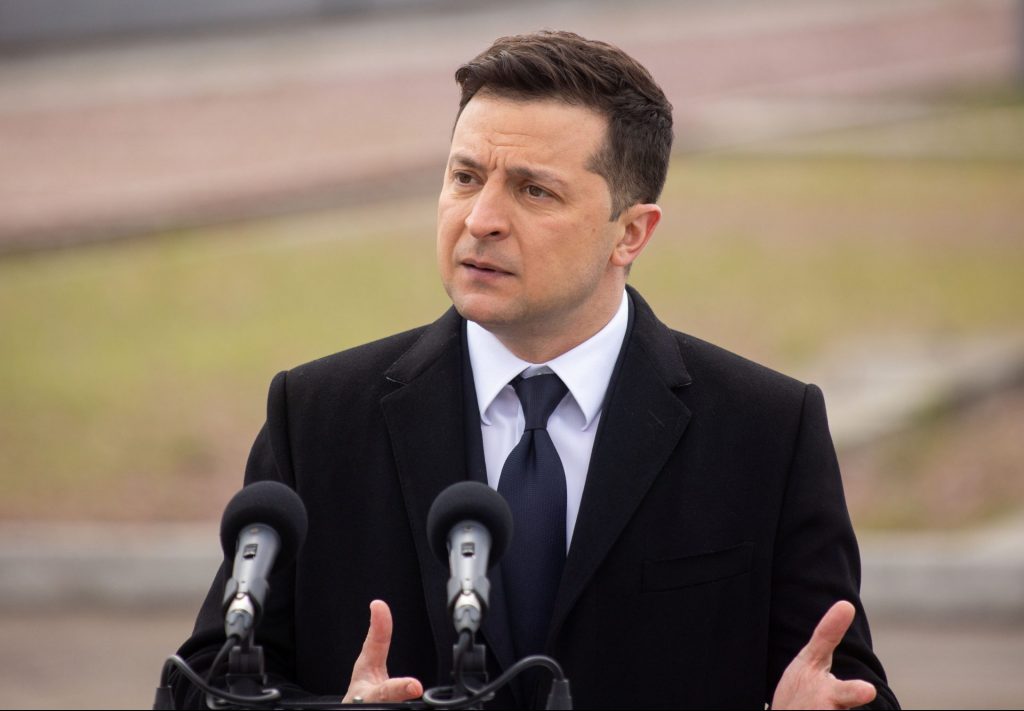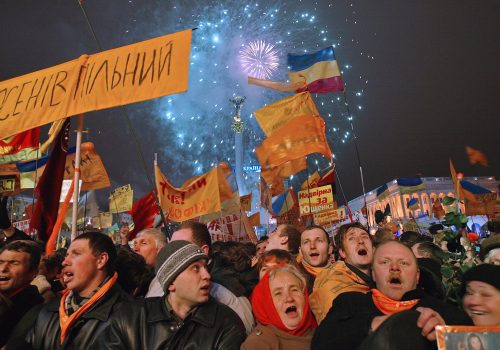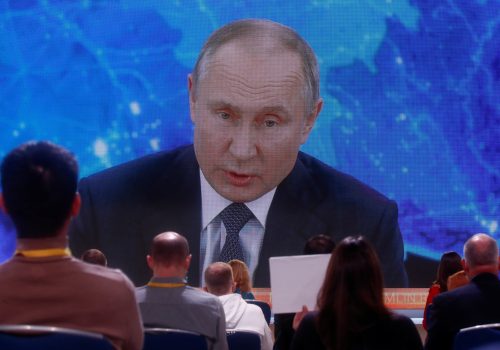There are almost 200 different countries in today’s world. The most successful among them share certain common traits. They have all learned to offer the international community something unique and useful, and they have all established constructive domestic relationships between citizens and government.
These two ideas are at the very heart of our vision for the transformation of Ukraine. In order to succeed, Ukraine must become a rule of law democracy that works in the interests of the many rather than the few.
This is not currently the case.
Since the 1990s, a small handful of Ukrainians have dominated the economic and political life of the country. We all know the names of these people. They feature in annual lists of the richest Ukrainians which remain virtually unchanged from year to year. The rest of the country has little choice but to adapt to the reality created by this oligarch class, which distributes Ukraine’s political, financial, industrial, and media resources among themselves.
Ukraine’s unelected elite has rigged the system and established a set of rules designed to perpetuate the current status quo indefinitely. Most Ukrainians oppose this inbuilt inequality. Their dissatisfaction found expression in the 2019 presidential election, which saw one of Ukraine’s oligarchs defeated by a landslide. This presidential vote sent an emphatic message that Ukrainian society wants fundamental change.
Two years on, we are now making progress in the quest to transform Ukraine.
For the first time in many years, the number of oligarchs in the country has recently decreased, following a series of measures imposed against Viktor Medvedchuk. With the help of legal tools, Medvedchuk has been deprived of the opportunity to use media assets and state property in order to openly attack the country and damage Ukraine’s national security.
This is just the beginning. There will be many more such measures until all of Ukraine’s oligarchs are cut down to size and reduced to the status of ordinary big businessmen.
Previous Ukrainian governments could have taken similar steps if they had wanted to. However, it seems they regarded the continued existence of Ukraine’s oligarchs as a natural and profitable state of affairs that brought with it the promise of stability.
Stay updated
As the world watches the Russian invasion of Ukraine unfold, UkraineAlert delivers the best Atlantic Council expert insight and analysis on Ukraine twice a week directly to your inbox.
The example of Medvedchuk offers insights into the substance behind oligarch status in today’s Ukraine. If such people are deprived of their media resources, denied dubious access to strategic state assets, and stripped of political protection, they become toothless and are unable to weaken Ukraine further.
This is the purpose behind our policy of deoligarchization. By curtailing the power of the oligarchs and preventing them from blackmailing the state, we will create a fairer Ukraine that is truly competitive on the global stage and able to defend its sovereignty effectively.
In the near future, we will unveil key legislation addressing our systematic plans for the further deoligarchization of Ukraine. Our goal is to prevent destructive concentrations of power and resources, while guaranteeing the equality of all Ukrainian citizens before the law. If we succeed, we can end decades of poverty and finally shed Ukraine’s artificial status as one of Europe’s poorest countries.
What steps are currently being taken? There are dozens of reforms required in order to achieve the necessary transformation. These include a fair judiciary, effective decentralization, modern financial sector, transparent privatization of state-owned assets, and the completion of land reform.
Eurasia Center events

We do not seek change for change’s sake. On the contrary, we have a clear road map of where we need to be, just as we recognize what distinguishes countries with higher standards of living such as France, Germany, Canada, Poland, and Israel.
In order to reach this destination, we must not lose sight of common goals. The state itself cannot determine the path Ukrainians should follow as they seek to find their way in the wider world, but we do aim to make people’s lives easier. We will offer greater freedoms and more security so that society can become increasingly productive and successful.
With this in mind, we will continue to reduce the bureaucratic burden that once dominated relations between Ukrainian citizens and the state. Millions of Ukrainians have already grown accustomed to the “Diia” application and now use it to access a growing range of administrative services.
Ukraine has recently become the first country in the world to grant digital passports the same legal status domestically as traditional paper documents. I see no reason why Ukraine cannot remain at the forefront of digital innovation in other areas of everyday life.
There is no limit to our ambition. Every Ukrainian is acutely aware of their country’s vast untapped potential. In order to realize this potential, we must create a fair and functional system that protects the rights of the entire population rather than safeguarding the interests of the oligarchs. The foundations of this system are currently beginning to take shape.
We also need peace. All wars come to an end eventually. We have never incited the current confrontation. On the contrary, thanks to pragmatic diplomacy, we have achieved a number of breakthroughs that previously looked impossible. This includes a comprehensive ceasefire during the second half of 2020 that saved dozens of lives; a gas transit contract that directly matches our national interests; and the release of prisoners, some of whom had been in captivity for years. If this progress was possible, it indicates that a stable and sustainable peace is also achievable.
During the first two years of my administration, we have gained a detailed understanding of the transformation needed for Ukraine to occupy its rightful place in the global community. This requires a whole package of interconnected and systemic reforms, many of which are now underway. Much more will follow in the years ahead. Our ultimate objective is to destroy the traditional oligarchic order and replace it with a fairer system that will allow Ukraine to flourish.
Volodymyr Zelenskyy is the President of Ukraine. A Ukrainian-language version of this article was originally published by Focus magazine.
Further reading
The views expressed in UkraineAlert are solely those of the authors and do not necessarily reflect the views of the Atlantic Council, its staff, or its supporters.

The Eurasia Center’s mission is to enhance transatlantic cooperation in promoting stability, democratic values and prosperity in Eurasia, from Eastern Europe and Turkey in the West to the Caucasus, Russia and Central Asia in the East.
Follow us on social media
and support our work
Image: Ukrainian President Volodymyr Zelenskyy pictured during a visit to the Chornobyl Nuclear Power Plant on April 26, 2021. (Ukrainian Presidential Press Service via REUTERS)




